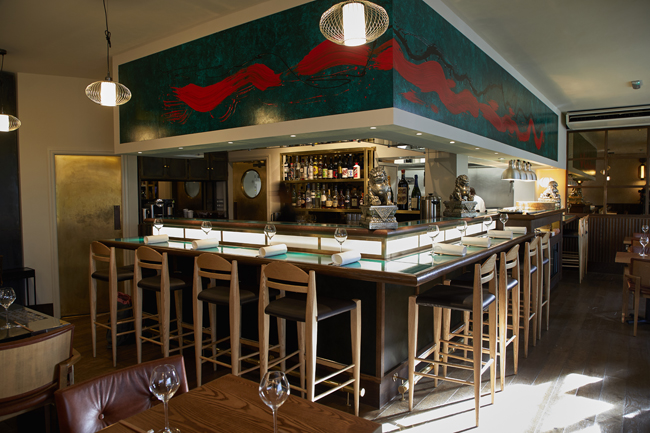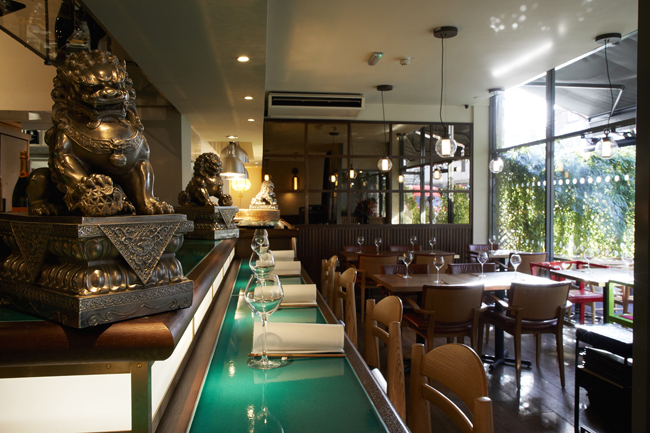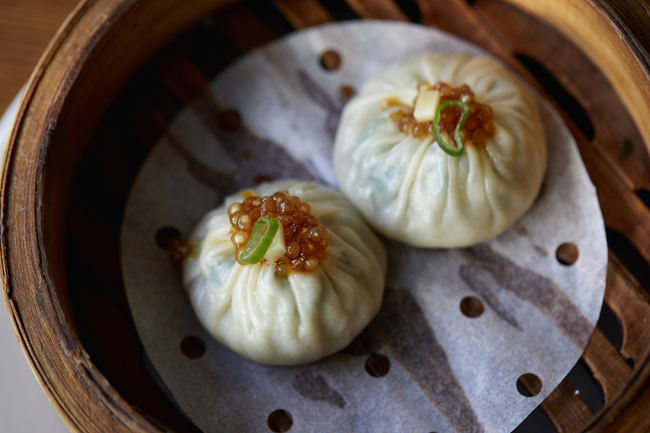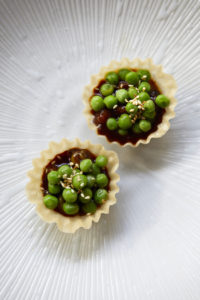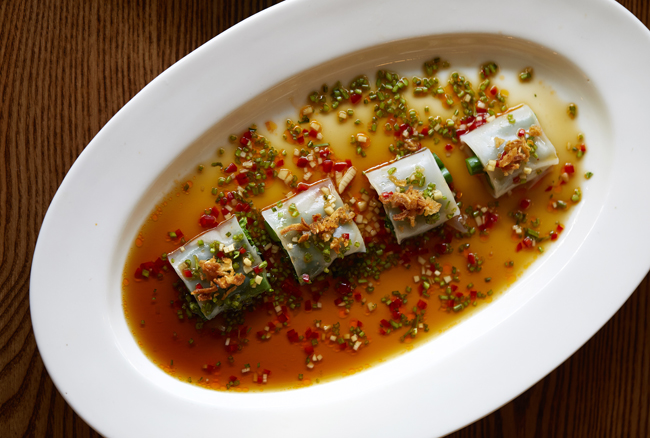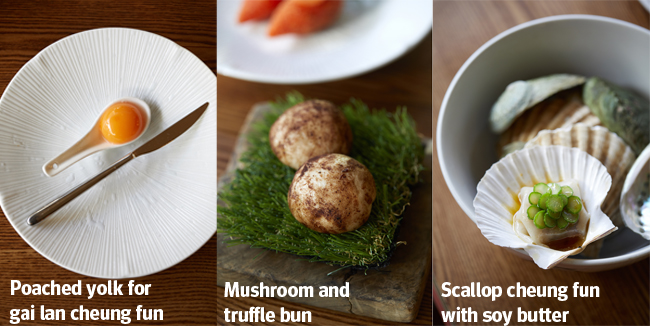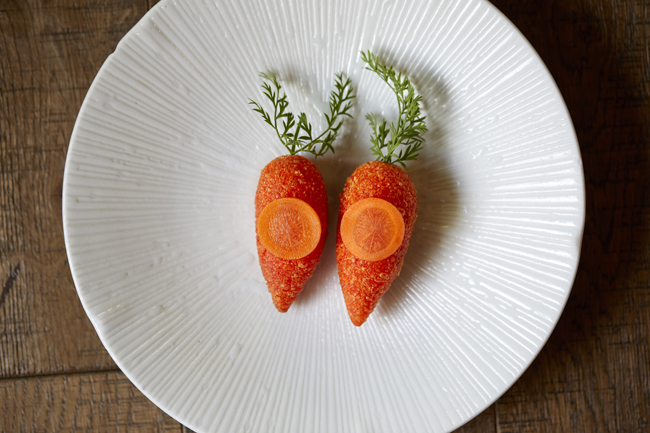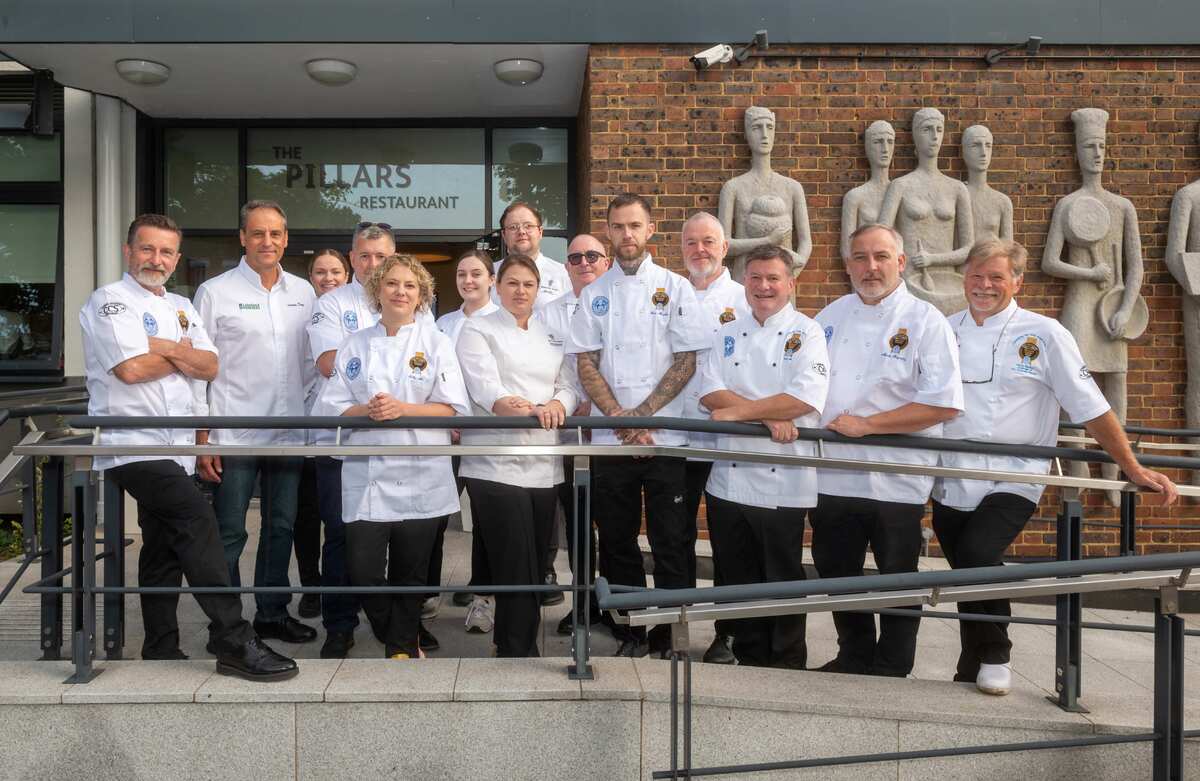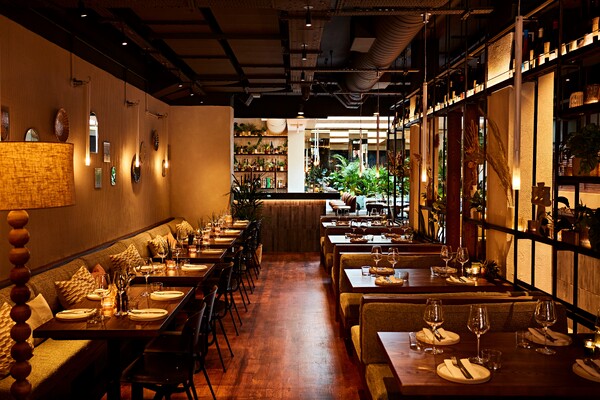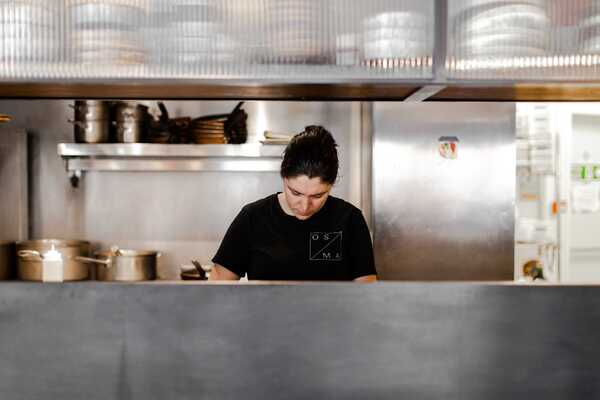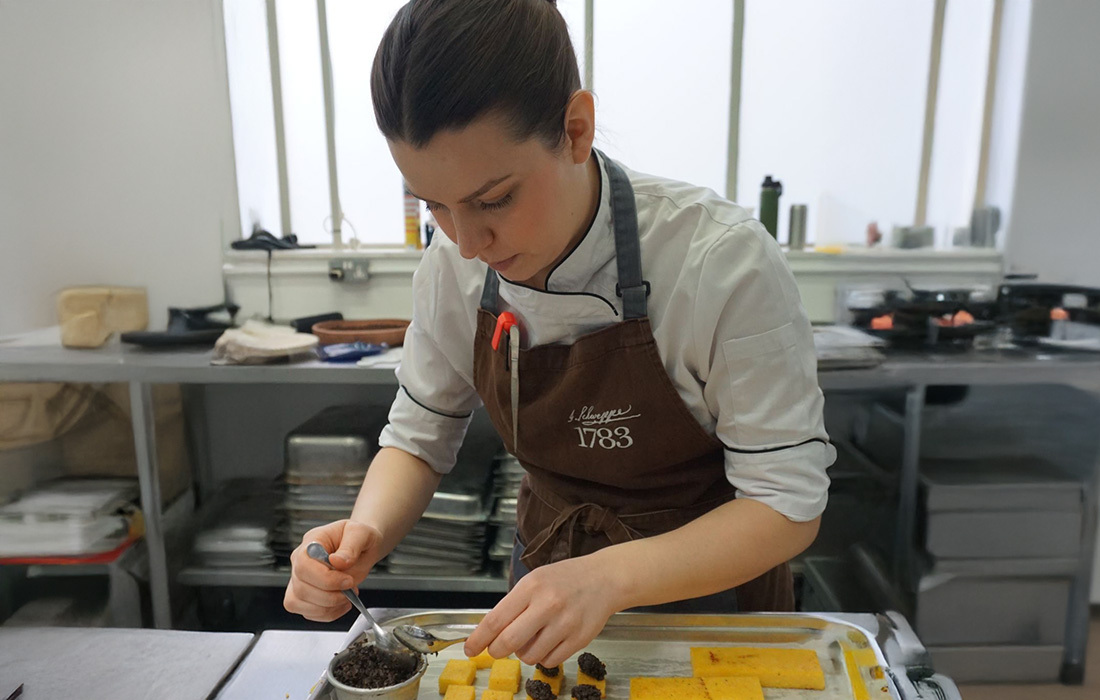Dim sum king: Andrew Wong draws on thousands of years of Chinese history at his London restaurant A Wong
Andrew Wong has always based his menu at A Wong in London's Victoria on authentic Chinese cuisine, but now he's delving deeper, creating a sharing menu fit for an emperor, as well as opening another site in the City's Bloomberg Arcade. Fiona Sims reports
And no, in case youâre wondering, Andrew isnât the A in A Wong. Itâs a nod to his parents, Albert and Annie, who founded the restaurant in 1985. Although since Andrew took it over five years ago, itâs a very different animal, with its lofty lunchtime dim sum and its 10-course Taste of China menu, a romp through regions most of us have never heard of.
Itâs because Wong wants us to know more about Chinese cuisine â" beyond Cantonese, Shanghainese and our peculiarly British hybrid of it. And if he can do that at a grass-roots level, then so much the better. Not content with just a Michelin-starred eatery, Wong is opening a second, more casual restaurant in the Cityâs Bloomberg Arcade in the summer, which will aim to do just that.
âIâve been given this privileged platform and I think it would be an injustice not to use it in some way to promote Chinese culture and heritage, because there is just so much to know,â he says.
The new restaurant is backed by Chris Millerâs White Rabbit Fund and is set to open in June. It will seat 80 and occupy two floors, and boast a bigger kitchen than the one in Pimlico. Will it be called Madame Wong, as reported widely by the press? âWeâve still got a few names weâre working on,â he replies, with a shrug.
âAlthough it will be completely different to A Wong, it will still reflect the way I cook,â he adds. Heâs not giving much away about the menu, but he insists there wonât be any crossover with the dishes.
âWeâre still toying with it. The most important thing is that it needs to sit well with the City crowd. A Wong is very much a neighbourhood restaurant and Iâm here every day â" we try our best to make it as destination as we can. The restaurant in the Bloomberg building is for office workers who need a quick meal that will give them a snapshot of China and an understanding of what we do â" what China has to offer, with its multiple levels of flavours and textures,â he explains.
Meanwhile, A Wong, which has just had a bit of a makeover and is sporting more serious seating and more grown-up flooring and lighting, is set to move in a slightly different direction â" more of which later. âIt will give this second restaurant a clearer identity,â says Wong. âIn London there is this massive, murky pool of relatively inexpensive Chinese food. We will try to do something slightly different, but still using the best products and cooking with integrity and celebrating those techniques. The amount of research that goes into these dishes will be the same as the work we put into the dishes at A Wong.â
Collaborate to innovate
He reveals that heâs been working on the development of these new dishes with âsome great chefsâ in both London and Hong Kong, coaxing them to part with their techniques. For example, he waxes lyrical about a technique for cooking pork belly where it stays crispy for five hours and crumbles like pastry.
âThe second restaurant project has been going on for several years and we had been trying to find the right home for it and now we have one. The first seed was a won ton noodle shop, and obviously that idea has changed dramatically, but it will have the heart of that â" busy and buzzy,â he promises. Thereâll be no dim sum, though. âItâs a very specialist skill â" we have two ladies here in Pimlico who have been doing it for 25 years. If we canât do the very best, Iâd rather not do it at all,â he says.
The dim sum at A Wong is what put the restaurant on the map for many. Take his ginger-scented, broth-filled soup dumplings, which he injects, rather ingeniously, with vinegar. âIt used to annoy me seeing people dunk them in too much vinegar, not to mention the waste, so we decided to inject it. But I donât see that as innovation, I just see that as being practical â" I can control the volume of vinegar,â he says.
âI didnât necessarily expect to win accolades but I did want to be the best. It would be the same if I was playing ice hockey, for example â" Iâd want to play at national league level. And a Michelin star is a pinnacle for the industry. The aim was always to create a restaurant of which I and my wife Nathalie could be proud.â
He admits it wasnât easy when they first opened. âIt was a car crash, to be honest. When you first get the reins of anything, youâre not very comfortable with what you think you like, so you follow trends, and you look at what other people are doing and what other people are saying, and you aspire to that, instead of thinking, âis this bullshit?â But five years down the line, Iâm comfortable with the fact that thereâs no point in comparing myself to the likes of Claude Bosi or Isaac McHale.
The evening-only 10-course tasting menu at A Wong costs £70 per person. It gives a tantalising glimpse into Chinaâs distinctive regional cuisine with dishes such as Zhou-dynasty cured scallop, which garnishes a stuffed, fat crab claw; Chengdu street tofu is brought to zingy life with soy, chilli, peanuts and preserved vegetables; Anhui-province red-braised fermented fish belly, which is surprisingly delicate; and Shaanxi-province pulled lamb burger, which diners scoop out of a cast-iron dish, stuff into a steamed bun and top with a Xinjiang province-inspired pomegranate salad.
âChina has 14 national borders with each one offering a diversity and richness to the cuisine,â reads the menu. Around 30% of the diners will order this every night.
The emperorâs new menu
So what new direction is Wong taking with A Wong? âWe are looking at what the emperors ate,â he says. âThey would have had 99 dishes presented to them every mealtime, and they would choose the ones they wanted to eat. But if you look at each individual dish, they werenât massively different to our interpretation of Chinese food today, from braised pork to some form of dim sum or meatball. Itâs more about how they ate it that Iâve been thinking about. Not everyone wants a tasting menu of small bites brought out one after the other, with waiters describing each dish. I love the idea of having an eclectic array of dishes on the table at the same time, with loads of different flavours and textures, emperor-style. And for the flow of the kitchen, itâs actually easier than a tasting menu.â
This sharing is an important interpretation of Chinese culture for Wong, so much so that it saddens him when Chinese restaurants plate their food European-style. âItâs a massive injustice to our culture. It misses the point of what eating is to us. Our food is designed to be shared â" to be put in the middle of the table for people to come together and grab at. Eating in a restaurant for the Chinese is about communality â" if you take that away, youâve taken away the essence of Chinese cuisine,â he says.
Even the tasting menu encourages sharing: each dish is brought to the table on one plate, ready for all the diners to dive in. âIn European cuisine you talk about the combination of flavours; in Chinese cuisine, you talk about the combination of dishes. I think the next level is encouraging guests to order enough of a selection so they get that, which we will do with the emperor-style menu.â
And definitely no spring rolls? âIâm pretty sure weâre the only Chinese restaurant in the world that doesnât serve spring rolls. We took them off a few months ago because I was fed up with people ordering them out of habit,â he says.
He does still offer crispy aromatic duck, though, but for how much longer, heâs not sure. âMy heart saddens a little every time someone orders it,â he says. âBut crispy aromatic duck is kind of a seminal dish in London. It was designed here, back in the 1960s by an ex-ambassadorâs chef who opened a restaurant in Walthamstow. He couldnât convince Londoners to eat a whole Peking duck, so he came up with this. Itâs at the top of my cull list, but in a weird way, I do understand that for London itâs kind of appropriate, so maybe Iâll keep it on.
âYou asked me what difference the star has made. Well, it allows me a little bit of creative freedom, and it has enabled our guests to join us on the next part of our culinary journey. It would be a lot more difficult to get customers on board without that Michelin star. With it comes a level of authority that you can use to your advantage in ushering your guests to join you on the next step.â
A very personal journey in Chinese culture

When his father died, he returned to the restaurant to help his mother run it, which is when his passion for cooking started to grow. While still studying at LSE, he enrolled in cooking classes at Westminster Kingsway College, and subsequently spent six months travelling around China, the first of many research trips to explore the countryâs complex regional cuisine.
âWhen I first started cooking Chinese food, I thought, âI can improve thisâ. But then I realised that all the improvements Iâd made came back to the original recipe. Thereâs a reason why these techniques have lasted thousands of years â" the recipes work. But the journey is the important part,â he says.
To guide him on his journey, Wong works with Mukta Das, an anthropologist at the School of Oriental and African Studies in London. âIâve reached a stage where Iâve got most dishes out of my system and onto the menu, so the next stage is to push forward this idea of China as a whole and to give people a different interpretation of Chinese food,â he says.
In his research, Wong has discovered there are 2,000 different kinds of dim sum. âIf you look across the world youâll see only 50 dim sum recipes being used, so this is extremely exciting,â he enthuses. He shows me a recipe from an old palace cookbook that he is itching to try â" pine pollen-juice soup with deer head.
âI was born in London, I grew up in Hong Kong, but you ask any British-born Chinese what they know about the Ming dynasty, and I guarantee that 99% wouldnât have the first clue,â he says. âThe menu at A Wong is an exploration of China, but itâs my exploration, my journey. Itâs very personal.â



